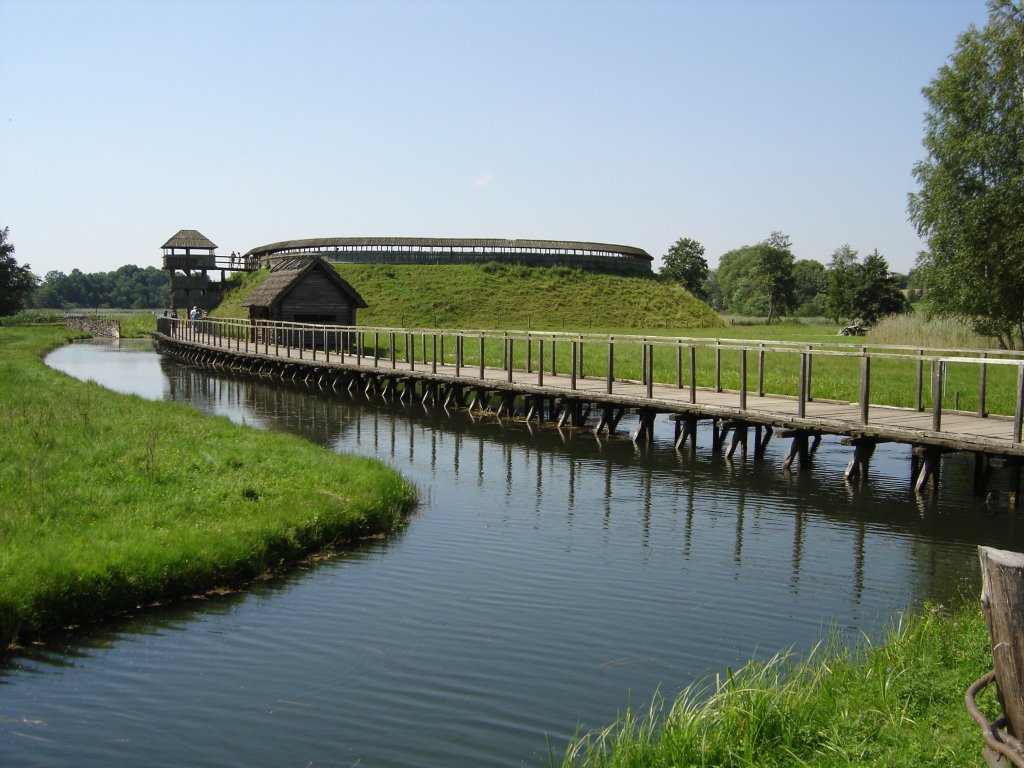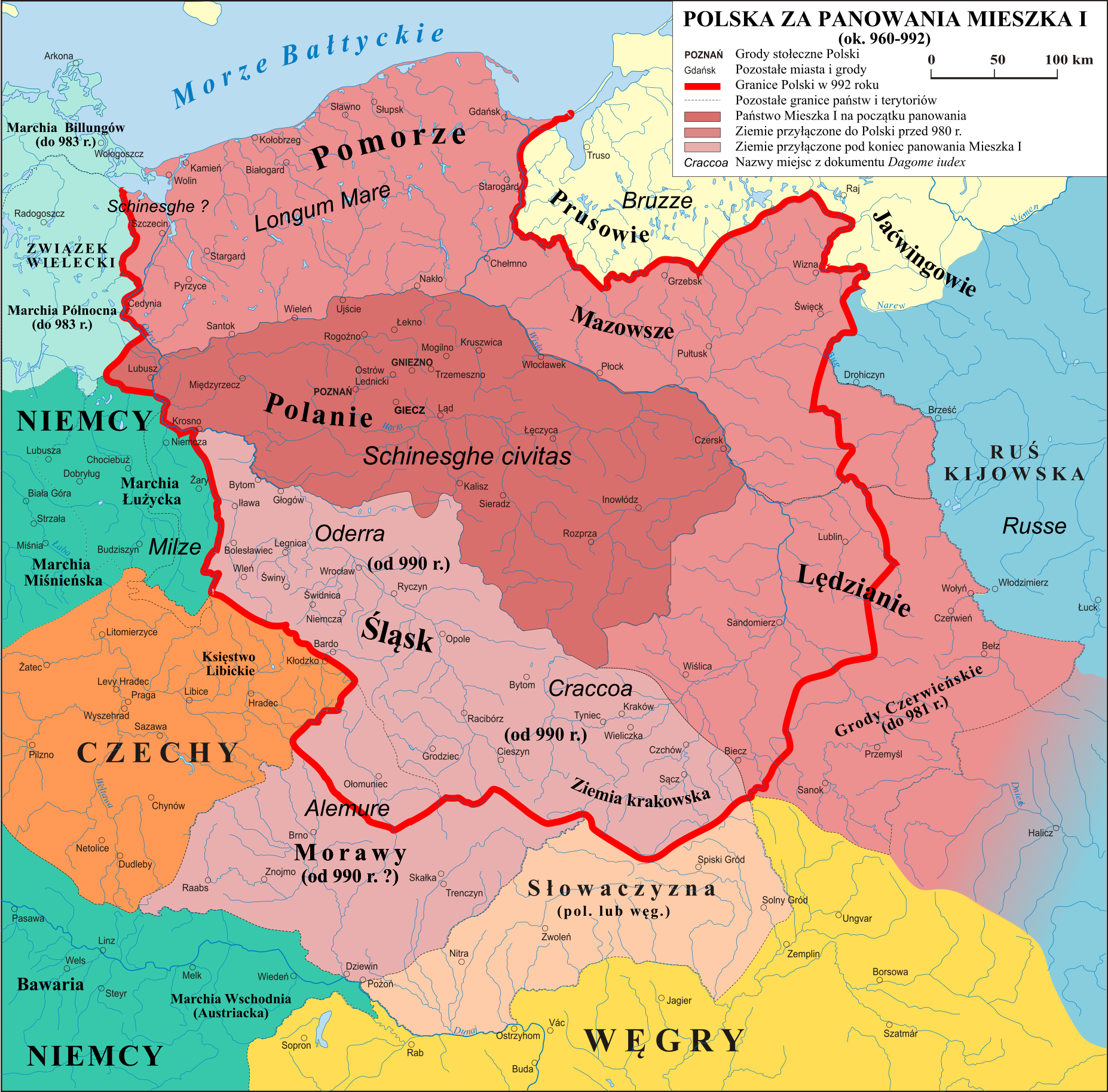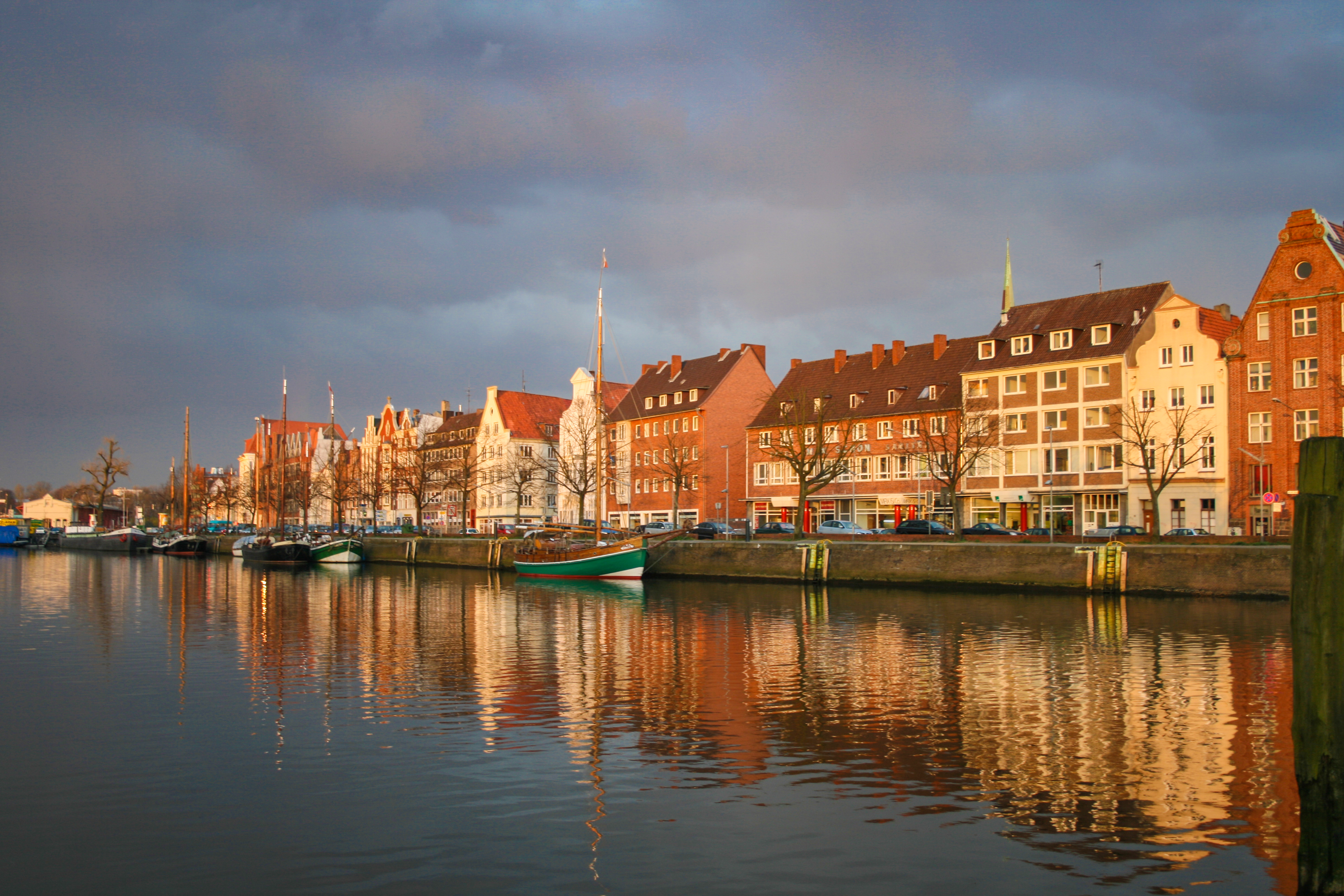|
Polabians (tribe)
:''"Polabian Slavs" is often used as a general term for the West Slavs of Germany. This article is about the specific tribe called "Polabians".'' The Polabians (german: Polaben; la, Polabi) were a constituent Lechitic tribe of the Obotrites who lived between the Trave and the Elbe. The main settlement of the Polabians was Racisburg (modern Ratzeburg), named after their Prince Ratibor. The Polabians were similar to the Drevani, also known as the Draväno-polaben or Drevanen, in Lüchow-Dannenberg. In 1139, Henry the Lion granted "Polabia" to Count Henry of Badewide. The tribe was subsequently Germanized and assimilated over the following centuries. The last remnants of the Polabians, including the Polabian language, died out in the 18th century. Cultural remnants of the Polabians of Lower Saxony include numerous villages in the region based on Slavic settlement forms. See also *List of Medieval Slavic tribes This is a list of Slavic peoples and Slavic tribes reported in Late ... [...More Info...] [...Related Items...] OR: [Wikipedia] [Google] [Baidu] |
Polabian Slavs
Polabian Slavs ( dsb, Połobske słowjany, pl, Słowianie połabscy, cz, Polabští slované) is a collective term applied to a number of Lechitic ( West Slavic) tribes who lived scattered along the Elbe river in what is today eastern Germany. The approximate territory stretched from the Baltic Sea in the north, the Saale and the ''Limes Saxoniae''Christiansen, 18 in the west, the Ore Mountains and the Western Sudetes in the south, and Poland in the east. They have also been known as Elbe Slavs (german: Elbslawen) or Wends. Their name derives from the Slavic ''po'', meaning "by/next to/along", and the Slavic name for the ''Elbe'' (''Labe'' in Czech and ''Łaba'' in Polish). The Polabian Slavs started settling in the territory of modern Germany in the 6th century. They were largely conquered by Saxons and Danes since the 9th century and were subsequently included and gradually assimilated within the Holy Roman Empire. The tribes were gradually Germanized and assimilated in ... [...More Info...] [...Related Items...] OR: [Wikipedia] [Google] [Baidu] |
Lechites
Lechites (, german: Lechiten), also known as the Lechitic tribes (, german: Lechitische Stämme), is a name given to certain West Slavic tribes who inhabited modern-day Poland and eastern Germany, and were speakers of the Lechitic languages. Distinct from the Czech–Slovak subgroup, they are the closest ancestors of ethnic Poles and the Pomeranians, Lusatians and Polabians. History According to Polish legend, Mieszko I inherited the ducal throne from his father who probably ruled over two-thirds of the territory inhabited by eastern Lechite tribes. He united the Lechites east of the Oder (Polans, Masovians, Pomeranians, Vistulans, Silesians) into a single country of Poland. His son, Bolesław I the Brave, founded the bishoprics at Wrocław, Kołobrzeg, and Kraków, and an archbishopric at Gniezno. Bolesław carried out successful wars against Bohemia, Moravia, Kievan Rus' and Lusatia, and forced the western Pomeranians to pay Poland a tribute. Shortly before his death Bo ... [...More Info...] [...Related Items...] OR: [Wikipedia] [Google] [Baidu] |
Tribe
The term tribe is used in many different contexts to refer to a category of human social group. The predominant worldwide usage of the term in English language, English is in the discipline of anthropology. This definition is contested, in part due to conflicting theoretical understandings of social and kinship structures, and also reflecting the problematic application of this concept to extremely diverse human societies. The concept is often contrasted by anthropologists with other social and kinship groups, being hierarchically larger than a lineage or clan, but smaller than a chiefdom, nation or state (polity), state. These terms are equally disputed. In some cases tribes have legal recognition and some degree of political autonomy from national or federal government, but this legalistic usage of the term may conflict with anthropological definitions. In the United States, Tribe (Native American), Native American tribes are legally considered to have "domestic dependent ... [...More Info...] [...Related Items...] OR: [Wikipedia] [Google] [Baidu] |
Obotrites
The Obotrites ( la, Obotriti, Abodritorum, Abodritos…) or Obodrites, also spelled Abodrites (german: Abodriten), were a confederation of medieval West Slavs, West Slavic tribes within the territory of modern Mecklenburg and Holstein in northern Germany (see Polabian Slavs). For decades, they were allies of Charlemagne in his wars against the Germanic Saxons and the Slavic Veleti. The Obotrites under Prince Thrasco (Obotrite prince), Thrasco defeated the Saxons in the Battle of Bornhöved (798). The still heathen Saxons were dispersed by the emperor, and the part of their former land in Holstein north of Elbe was awarded to the Obotrites in 804, as a reward for their victory. This however was soon reverted through an invasion of the Danes. The Obotrite regnal style was abolished in 1167, when Pribislav of Mecklenburg, Pribislav was restored to power by Duke Henry the Lion, as Prince of Mecklenburg, thereby founding the German House of Mecklenburg. Obotritic confederation The Bav ... [...More Info...] [...Related Items...] OR: [Wikipedia] [Google] [Baidu] |
Trave
The Trave () is a river in Schleswig-Holstein, Germany. It is approximately long, running from its source near the village of Gießelrade in Ostholstein to Travemünde, where it flows into the Baltic Sea. It passes through Bad Segeberg, Bad Oldesloe, and Lübeck, where it is linked to the Elbe–Lübeck Canal. It is navigable for sea-going vessels from the Baltic to the Lübeck ports. The Herren Tunnel crosses the Trave, as do numerous bridges, and a ferry connects Travemünde with Priwall Peninsula, Priwall. Tributaries of the Trave include the Wakenitz and the Stepenitz (Trave), Stepenitz. Course Source and upper Trave The Trave rises in Gießelrade (a village in Ostholstein), whence it flows first southwesterly through the Wardersee to Bad Segeberg and then further south to Bad Oldesloe. There it bends eastward to just south of Reinfeld, Schleswig-Holstein, Reinfeld, flowing past Hamberge and (a district of Lübeck) to reach Lübeck. In Lübeck The Elbe–Lübeck Canal joi ... [...More Info...] [...Related Items...] OR: [Wikipedia] [Google] [Baidu] |
Elbe
The Elbe (; cs, Labe ; nds, Ilv or ''Elv''; Upper and dsb, Łobjo) is one of the major rivers of Central Europe. It rises in the Giant Mountains of the northern Czech Republic before traversing much of Bohemia (western half of the Czech Republic), then Germany and flowing into the North Sea at Cuxhaven, northwest of Hamburg. Its total length is . The Elbe's major tributaries include the rivers Vltava, Saale, Havel, Mulde, Schwarze Elster, and Ohře. The Elbe river basin, comprising the Elbe and its tributaries, has a catchment area of , the twelfth largest in Europe. The basin spans four countries, however it lies almost entirely just in two of them, Germany (65.5%) and the Czech Republic (33.7%, covering about two thirds of the state's territory). Marginally, the basin stretches also to Austria (0.6%) and Poland (0.2%). The Elbe catchment area is inhabited by 24.4 million people, the biggest cities within are Berlin, Hamburg, Prague, Dresden and Leipzig. Etymology Firs ... [...More Info...] [...Related Items...] OR: [Wikipedia] [Google] [Baidu] |
Ratzeburg
Ratzeburg (; Low German: ''Ratzborg'') is a town in Schleswig-Holstein, Germany. It is surrounded by four lakes—the resulting isthmuses between the lakes form the access lanes to the town. Ratzeburg is the capital of the district Herzogtum Lauenburg. History The town was founded in the 11th century as Racisburg. The name is traditionally derived from the local Wendish ruler, Prince Ratibor of the Polabians, who was nicknamed Ratse. In the year 1044 Christian missionaries under the leadership of the monk Ansverus came into the region and built a monastery. It was destroyed in a pagan rebellion in 1066; the monks were stoned to death. Today monuments to the missionaries in two of the town's churches commemorate these events. Ansverus was canonised in the 12th century and his relics were entombed in the Ratzeburg cathedral. Henry the Lion became the ruler of the town in 1143 and established a bishopric in 1154. He was also responsible for the construction of the late Romane ... [...More Info...] [...Related Items...] OR: [Wikipedia] [Google] [Baidu] |
Drevani
The Drevani (german: Draväno-Polaben or ''Drevanen'') were a tribe of Polabian Slavs settling on the Elbe river in the area of the present-day Lüchow-Dannenberg district of Lower Saxony, Germany. They were a constituent tribe of the Obodrite confederacy. In the course of the 9th century their territory was conquered by the Carolingian Empire and incorporated into the Duchy of Saxony. According to the Royal Frankish Annals, Emperor Charlemagne had a fortress built at Höhbeck. The lands where the Drevani lived is today also known as the Wendland, named after the Wends. The local Slavic language ( Polabian) died out in the mid-18th century. The name ''Drevani'' means "people of woods/trees" in Polabian (from ''drevo'' "tree"). It has survived in the name of the Drawehn The Drawehn is a partly wooded and partly agricultural region of hills in the northeastern part of the German state of Lower Saxony, lying between the districts of Lüneburg and Uelzen in the west and Lüchow-Dann ... [...More Info...] [...Related Items...] OR: [Wikipedia] [Google] [Baidu] |
Lüchow-Dannenberg
Lüchow-Dannenberg is a district in Lower Saxony, Germany, which is usually referred to as Hanoverian Wendland (''Hannoversches Wendland'') or Wendland. It is bounded by (from the west and clockwise) the districts of Uelzen and Lüneburg and the states of Mecklenburg-Western Pomerania (district of Ludwigslust-Parchim), Brandenburg (district of Prignitz) and Saxony-Anhalt (districts of Stendal and Altmarkkreis Salzwedel). History In medieval times the counties of Lüchow and Dannenberg occupied the area (from the early 12th century on). These counties were originally Slavic states that lost their independence to the Duchy of Brunswick-Lüneburg in the beginning of the 14th century. Since that time it was always an eastern extension of different entities, usually states like West Germany. The area was ruled by Lüneburg until 1705 and then became a part of the Electorate of Hanover. When the Kingdom of Hanover was annexed by Prussia (1866), the districts of Lüchow and Dannenber ... [...More Info...] [...Related Items...] OR: [Wikipedia] [Google] [Baidu] |
Henry The Lion
Henry the Lion (german: Heinrich der Löwe; 1129/1131 – 6 August 1195) was a member of the Welf dynasty who ruled as the duke of Saxony and Bavaria from 1142 and 1156, respectively, until 1180. Henry was one of the most powerful German princes of his time, until the rival Hohenstaufen dynasty succeeded in isolating him and eventually deprived him of his duchies of Bavaria and Saxony during the reign of Emperor Frederick Barbarossa and of Frederick's son and successor Henry VI. At the height of his reign, Henry ruled over a vast territory stretching from the coast of the North and Baltic Seas to the Alps, and from Westphalia to Pomerania. Henry achieved this great power in part by his political and military acumen and in part through the legacies of his four grandparents. Family background Born in Ravensburg, in 1129 or 1131, he was the son of Henry the Proud, duke of Bavaria and Saxony, who was the heir of the Billungs, former dukes of Saxony. Henry's mother was ... [...More Info...] [...Related Items...] OR: [Wikipedia] [Google] [Baidu] |
Henry Of Badewide
Henry of Badewide (or Badwide) (german: Heinrich von Badewide) (died ca. 1164) was a Saxon Count of Botwide (after 1149) and Count of Ratzeburg (after 1156). Henry came from a knightly family from Lüneburg. He took his name from Bode near Ebstorf. He married a relative of King Valdemar I of Denmark and had two brothers, Helmold and Volrad; the latter was not, as often supposed, the first Count of Dannenberg. After replacing Henry the Proud as Duke of Saxony in 1138, Albert the Bear made Henry a ''Graf'' (count) of Holstein, but Henry was soon replaced by Adolf II. Gertrude of Süpplingenburg granted Henry a claim to Wagria to the east of Holstein. In response to a raid by the Obotrite prince Pribislav, Henry led a campaign into Wagria against the Polabian Slavs. The lands around Plön, Lütjenburg, and Oldenburg were laid waste, as was the region between the Schwale, the Baltic Sea, and the Trave. The campaign failed to capture any of the strong castles, however. A campaign i ... [...More Info...] [...Related Items...] OR: [Wikipedia] [Google] [Baidu] |
Germanisation
Germanisation, or Germanization, is the spread of the German language, German people, people and German culture, culture. It was a central idea of German conservative thought in the 19th and the 20th centuries, when conservatism and ethnic nationalism went hand in hand. In linguistics, Germanisation of non-German languages also occurs when they adopt many German words. Under the policies of states such as the State of the Teutonic Order, Teutonic Order, Federal State of Austria, Austria, the German Empire and Nazi Germany, non-Germans were often prohibited from using their native language, and had their traditions and culture suppressed in the goal of gradually eliminating foreign cultures, a form of ethnic cleansing. In addition, colonists and settlers were used to upset the population balance. During the Nazi Germany, Nazi era, Germanisation turned into a policy of genocide against some non-German ethnic groups. Forms Historically there are different forms and degrees of the ex ... [...More Info...] [...Related Items...] OR: [Wikipedia] [Google] [Baidu] |






